Jacob Zuma: South Africa's ex-president eligible for parole in months
- Published
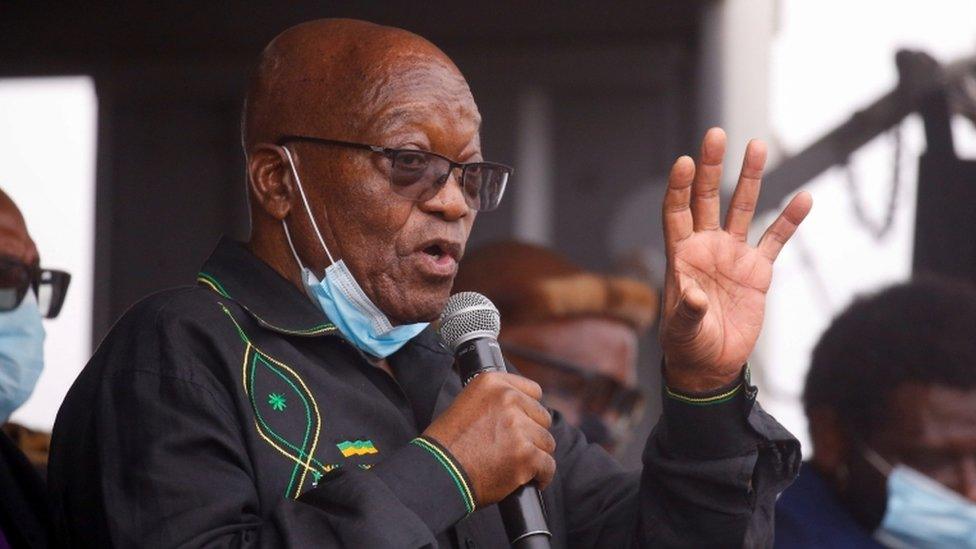
The former president was sentenced to 15 months in jail last week
South Africa's former President Jacob Zuma will be eligible for parole after four months of his 15-month jail sentence for contempt of court, the justice minister says.
Zuma handed himself in to police on Wednesday to begin his jail term at a prison in KwaZulu-Natal province.
He was sentenced last week after failing to attend an inquiry into corruption during his presidency.
Zuma, 79, denies corruption and has not co-operated with the legal process.
The jailing of a former president is unprecedented in South Africa, which has been gripped by Zuma's legal turmoil.
On Thursday Justice Minister Ronald Lamola said this was a time for restraint, not celebration, and promised Zuma would be treated like any other prisoner.
In accordance with South Africa's prison regulations, "the former president will be eligible for parole once a quarter of his sentence has been served", Mr Ramola told reporters.
Zuma was admitted to the Estcourt Correctional Centre, about 175km (110 miles) from his rural homestead in Nkandla in eastern South Africa.
Mr Ramola said Zuma would spend the first two weeks of his sentence in isolation in line with Covid-19 regulations.

No VIP treatment for Zuma
Analysis by Nomsa Maseko, BBC News Southern Africa correspondent
South Africa's justice and prison officials have been at pains to stress that Zuma will not get VIP treatment in jail.
They say he will wear orange overalls, which is the official uniform for sentenced inmates in South Africa.
Despite this, Zuma was said to be in good spirits and had breakfast after spending his first night in jail.
There's no doubt that Zuma's imprisonment has divided the governing African National Congress (ANC) party even further.
The party has admitted that these are difficult times and has urged its supporters to remain calm and respect Zuma's decision to surrender to prison authorities.
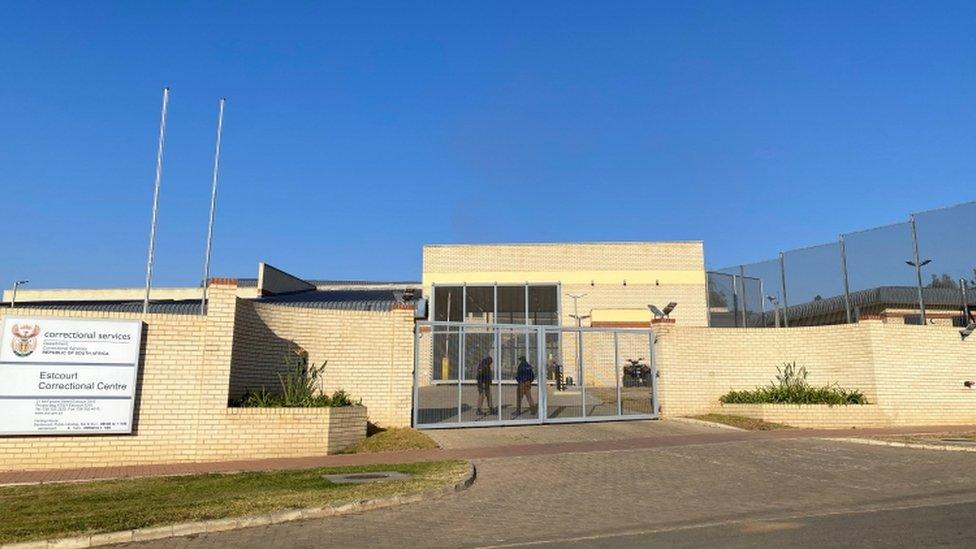
Zuma is being held at the Estcourt Correctional Centre in KwaZulu-Natal province

Zuma was sentenced on 29 June for defying an instruction to give evidence at an inquiry into corruption during his nine years in power. He has testified only once at the inquiry into what has become known as "state capture" - meaning the siphoning off of state assets.
Businessmen have been accused of conspiring with politicians to influence the decision-making process while he was in office. Zuma has repeatedly said he is the victim of a political conspiracy.
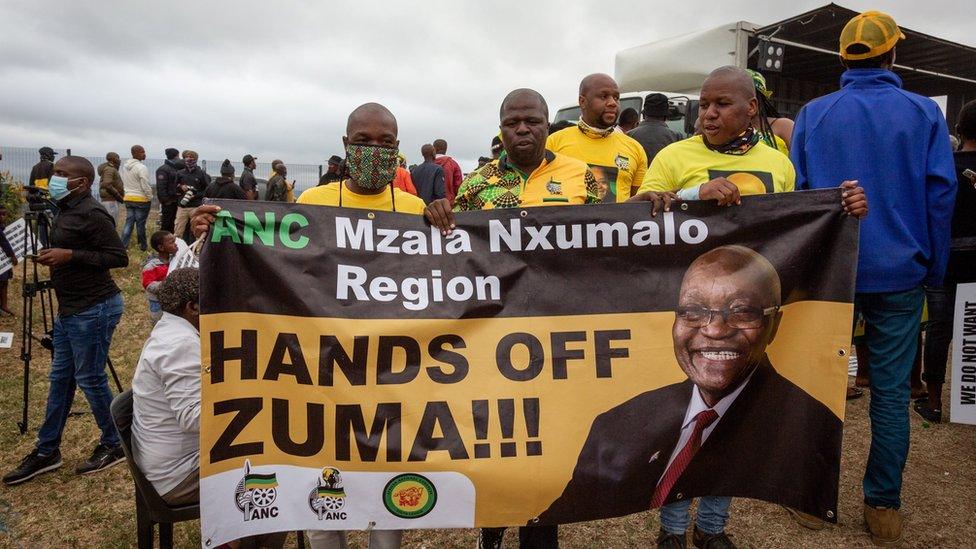
Zuma's supporters have protested against his arrest
The former president had initially refused to hand himself in, but in a short statement on Wednesday, the Jacob Zuma Foundation said he had "decided to comply".
But Zuma has launched legal challenges against his sentence on a number of grounds that are yet to be heard in court.
In a separate legal matter, Zuma pleaded not guilty last month in a corruption trial involving a $5bn (£3bn) arms deal from the 1990s.

Find out more about Jacob Zuma:

Though he was forced out of office in 2018 by his own party, the ANC, he retains a loyal body of supporters, especially in his home province of KwaZulu-Natal.
On Sunday, crowds formed what they called a human shield outside Zuma's palatial home in an effort to prevent his arrest. Similar crowds gathered before he handed himself in on Wednesday.
A delegation of senior officers are believed to have spent several hours inside the residence negotiating with the former president over his arrest.
A convoy of cars, one of which was carrying Zuma, was then seen leaving the house at high speed shortly before the midnight deadline for his detention.
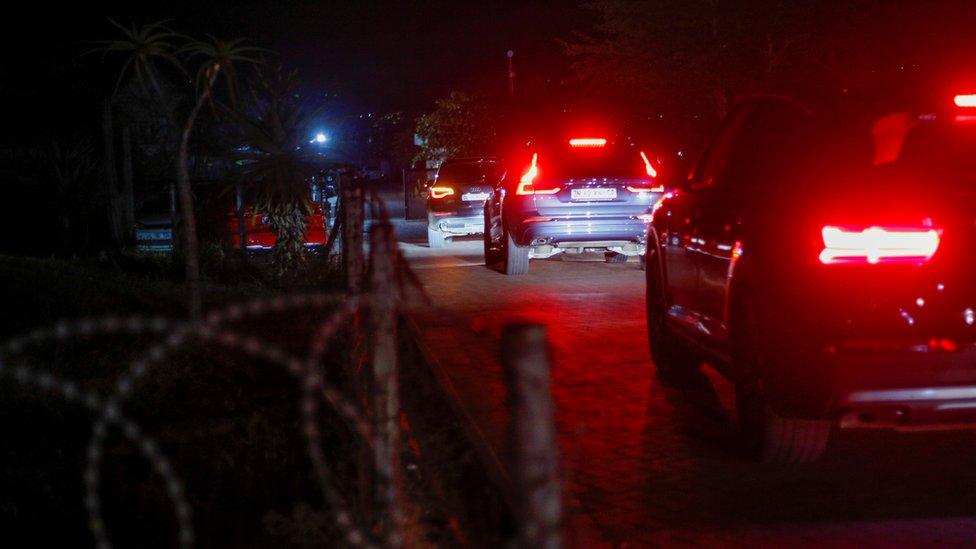
Zuma was taken to a prison near to his home in KwaZulu-Natal province late on Wednesday

Zuma's legal woes:
2005: Charged with raping family friend - acquitted in 2006
2005: Charged with corruption over multi-billion dollar 1999 arms deal - charges dropped shortly before he becomes president in 2009
2016: Court orders he should be charged with 18 counts of corruption over the deal - he appeals, but in 2017 loses a bid to overturn them
2016: Court rules he breached his oath of office by using government money to upgrade private home in Nkandla - he repays the money
2017: Public protector says he should appoint judge-led inquiry into allegations he profiteered from relationship with wealthy Gupta family - he denies allegations, as do the Guptas
2018: Zuma approves inquiry into claims of state looting
2018: The National Prosecuting Authority confirms Zuma will face prosecution for 12 charges of fraud, one of racketeering, two of corruption, and one of money laundering, relating to the arms deal, which he denies
2021: Begins a 15-month jail sentence after the Constitutional Court orders his arrest for refusing to testify at the commission into state looting

You may also be interested in
Why students in South Africa are turning to food banks
Related topics
- Published6 April 2018
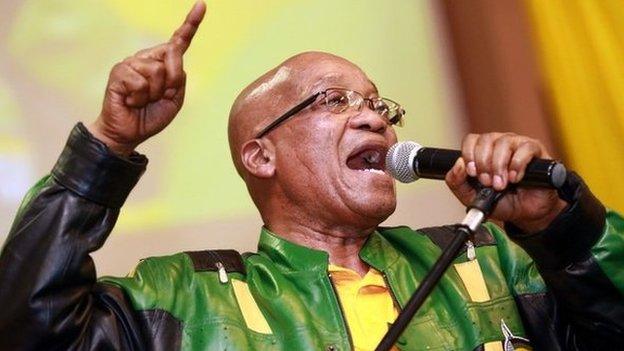
- Published15 July 2019
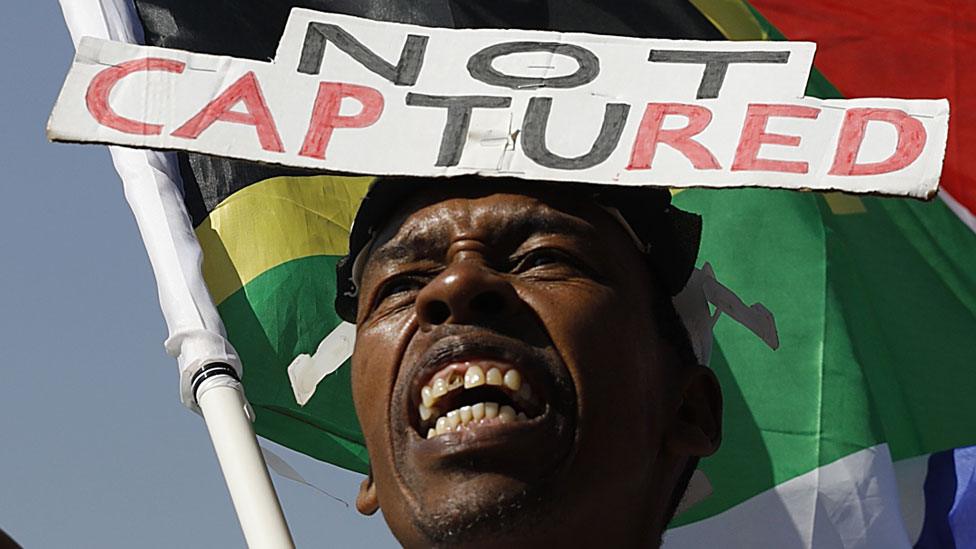
- Published9 July 2024
